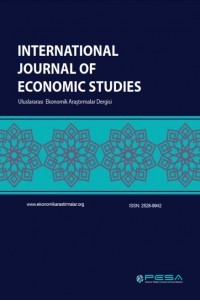Critical Theory and What It has to Offer to Human Resource Development
Critical Theory and What It has to Offer to Human Resource Development
In this paper, the purpose of human resource development is critically examined and suggested that critical theory can provide a theoretical lens to alter the corporate bottom-line approaches that are dominant in the field of HRD to more humane ones. After reviewing both HRD and critical theory literature and its approach to knowledge and learning, a critical HRD approach is presented
Keywords:
Human Resource Development Critical Theory,
___
- Bierema, L.L. (2000). Moving Beyond Performance Paradigms in Human Resource Development. In A. L. Wilson, and E. R. Hayes (Eds.), Handbook of Adult and Continuing Education (pp. 278-293). San Francisco: Jose-Bass.
- Dirkx, J.M. (1996). Human Resource Development as Adult Education: Fostering the Educative Workplace. In R. W. Rowden (Ed.), Workplace Learning: Debating Five Critical Questions of Theory and Practice (pp. 41-47). San Francisco: Jose- Bass.
- Dooley, L.M. (2002). HRD Literature: Where is it Published? Retrieved from ERIC database: http://www.eric.ed.gov.
- Gilley, J.W., Eggland, S.A., & Gilley, A.M. (2002). Principles of Human Resource Development. Cambridge, MA: Persus Publishing.
- Kilgore, D.W. (2001). Critical and Postmodern Perspectives on Adult Learning. In S. B. Merriam (Ed.), The New Update on Adult Learning Theory (pp. 53-61). San Francisco: Jose-Bass.
- Knowles, M.S., Holton, E.F., & Swanson, R.A. (1998). The Adult Learner: The Definitive Classic in Adult Education and Human Resource Development. Houston: Gulf Publishing Company.
- Outlaw, L.T. (2005). Critical Social Theory in the Interest of Black Folks. Maryland: Rowman & Littlefield Publishing Group, Inc.
- Rowden. R.W. (1996). Current Realities and Future Challenges. In R. W. Rowden (Ed.), Workplace Learning: Debating Five Critical Questions of Theory and Practice (pp. 3-10). San Francisco: Jose-Bass.
- Swanson, R.A., and Arnold, D.E. (1996). The Purpose of Human Resource Development Improve Organizational Performance. In R. W. Rowden (Ed.), Workplace Debating Five Critical Questions of Theory and Practice (pp. 13-19). San Francisco: Jose-Bass. Learning
- Tar, Z. (1977). The Frankfurt School: The Critical School of Max Horkheimer and Theodor W. Adorno. New York: John Wiley & Sons, Inc.
- Townsend, J.G. (1999). Empowerment Matters: Understanding Power. In J. G. Townsend, et al. Women and Power: Fighting Patriarchies and Poverty (pp. 19- 45). New York: Zed Books.
- Welton, M. R. (1993). The Contribution of Critical Theory to Our Understanding of Adult Learning. In S. B. Merriam (Ed), An Update on Adult Learning Theory (pp. 83-90). San Francisco: Jose- Bass.
- Wexley, K., and Latham, G. (1991). Developing and Training Human Resources in Organizations. New York: HarperCollins.
- ISSN: 2528-9942
- Başlangıç: 2015
- Yayıncı: Politik Ekonomik ve Sosyal Araştırmalar Merkezi
Sayıdaki Diğer Makaleler
Critical Theory and What It has to Offer to Human Resource Development
Ayşe ERTOSUN, Nurullah GENÇ, Hülya GÜNDÜZ ÇEKMECELİOĞLU
Sakarya'da Kobi'lerde İnsan Kaynakları Yönetimine Yönelik Algı Araştırması
Küreselleşme Sürecinde Yerel Ekonomik Kalkınma: Gaziantep Örneği
